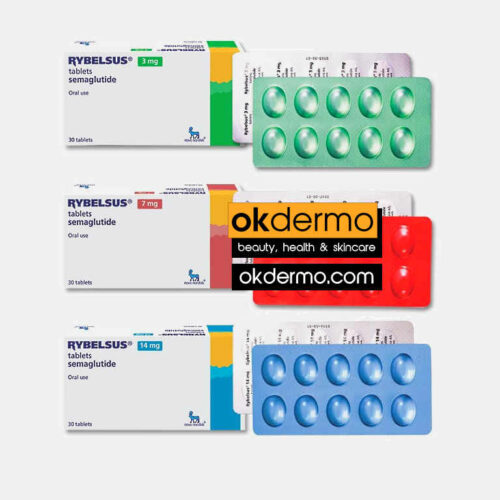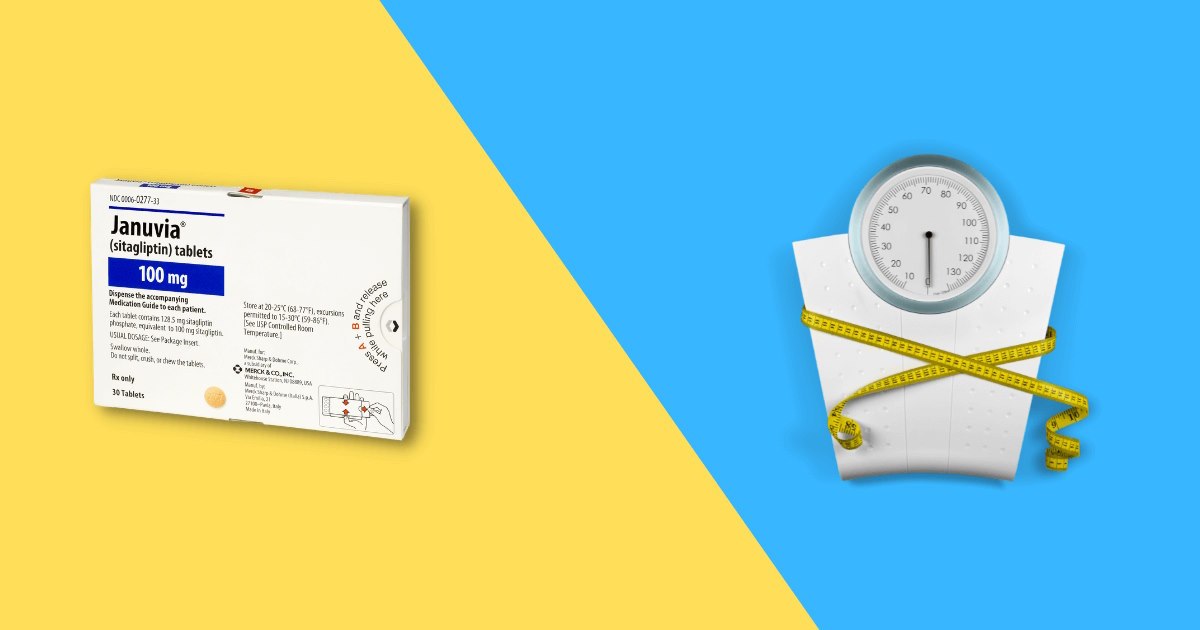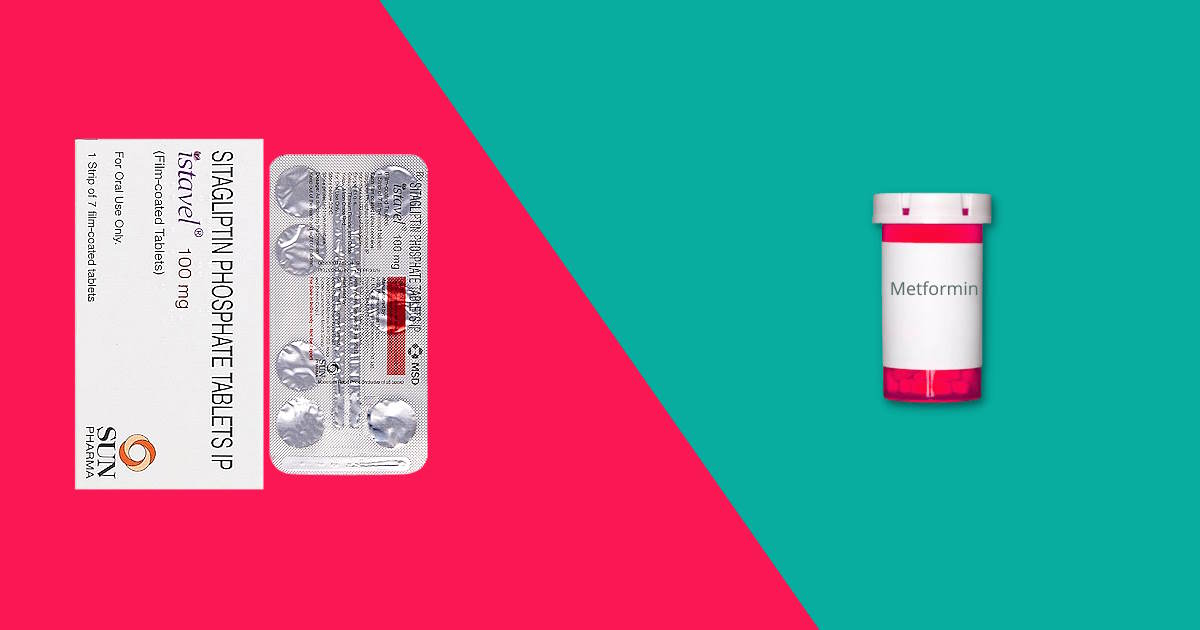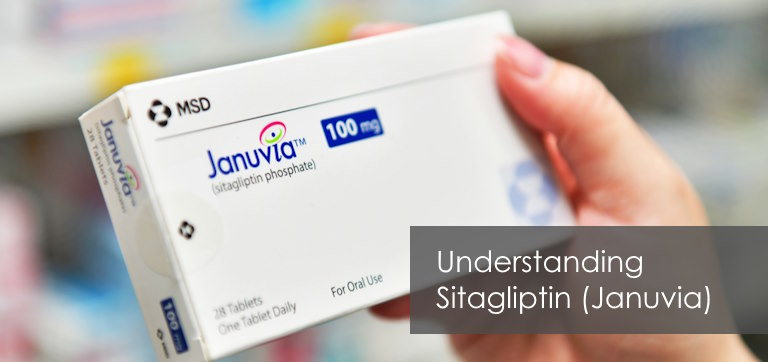Understanding Sitagliptin (Januvia): Uses, Dosage, Side Effects
Table of Contents
Sitagliptin, commonly known by its brand name Januvia, is a medication primarily used in the management of type 2 diabetes mellitus. It belongs to a class of diabetes drugs called dipeptidyl peptidase-4 (DPP-4) inhibitors.
In this guide, we will discuss Januvia (Sitagliptin) mode of action, Januvia dosage, Januvia side effects, and more.
Understanding Januvia (Sitagliptin) And Its Mechanism of Action
Januvia, containing the active ingredient sitagliptin, is available in tablet form. Januvia 100 mg is typically taken once daily, with or without food.
The mechanism of action of Januvia Sitagliptin revolves around targeting a specific enzyme in the body called dipeptidyl peptidase-4 (DPP-4). This enzyme is involved in breaking down incretin hormones, which play a key role in regulating blood sugar levels. By inhibiting DPP-4, sitagliptin helps to increase the levels of incretin hormones, such as glucagon-like peptide-1 (GLP-1) and glucose-dependent insulinotropic peptide (GIP). These hormones stimulate the release of insulin from the pancreas and reduce the production of glucose by the liver, leading to lower blood sugar levels after meals. By enhancing the body’s natural mechanisms for controlling blood sugar, sitagliptin helps individuals with type 2 diabetes better manage their condition.
-

Metformin Tablets
Metformin HCl 250mg / 500mg / 1g
Size: 60 tablets
Brand name: Glucophage, Glumetza, Riomet
From USD $15.00 Select options -

Rybelsus® Semaglutide Tablets
Semaglutide 3mg / 7mg / 14mg
Size: 30 Tablets
Brand name: Rybelsus, Ozempic, Wegovy
From USD $345.00 Select options -

Januvia® Sitagliptin Tablets
Sitagliptin 25mg / 50mg / 100mg + Dapagliflozin 5mg / 10mg
Size: 30 Tablets
Brand name: Januvia, Zituvio, Istavel, Auro-Sitagliptin, JAMP Sitagliptin, Taro-Sitagliptin Fumarate
From USD $44.00 Select options -

Jardiance® Empagliflozin Tablets
Empagliflozin 5mg / 10mg / 12.5mg / 25mg + Metformin 500mg / 1000mg
Size: 30 Tablets
Brand name: Jardiance
From USD $166.00 Select options
Uses of Sitagliptin (Januvia)
-
Management of Type 2 Diabetes Mellitus
By inhibiting DPP-4, Januvia sitagliptin enhances the body’s natural mechanisms for controlling blood sugar, ultimately aiding with better management of type 2 diabetes.
-
Combination Therapy for Diabetes Management
Sitagliptin can be used alongside drugs such as metformin, sulfonylureas, or insulin in combination therapy to provide additional benefits in managing type 2 diabetes
-
Potential Off-Label Uses
While sitagliptin is primarily used for the management of type 2 diabetes mellitus, there is ongoing research exploring its potential utility in other medical conditions. Some studies have investigated the use of sitagliptin in conditions such as polycystic ovary syndrome (PCOS), non-alcoholic fatty liver disease (NAFLD), and cardiovascular disease. However, the safety and efficacy of sitagliptin for these off-label uses have not been conclusively established, and further research is needed to determine its role in these conditions.
Januvia Weight Loss
While the primary use of Januvia is to help control blood sugar levels, there has been interest and speculation regarding potential Januvia weight loss effects. Some studies suggest that its mechanism of action could have indirect effects on weight.
- The role of Januvia in weight loss is not well established. Research examining the relationship between Januvia and weight has yielded mixed results. Some studies have reported modest weight loss in individuals taking Januvia, while others have found no significant changes in weight. These variations may be influenced by factors such as baseline weight, diet, exercise habits, and individual metabolic differences.
- Like any medication, individual responses to Januvia can vary. While some individuals may experience weight loss, others may notice no significant changes or even slight weight gain.

Januvia Dosage Guidelines
Initial Dosage:
- The typical starting dosage of Januvia for most adults is 100 mg taken orally once daily.
- Januvia can be taken with or without food, as directed by a healthcare provider.
- In patients with moderate to severe renal impairment (creatinine clearance less than 50 mL/min), the recommended starting dose is Januvia 50 mg once daily.
Dosage Adjustment:
- Januvia dosage can be adjusted based on individual patient factors such as renal function, glycemic control, and response to treatment.
- Januvia dosage adjustments may be necessary for patients with renal impairment or other medical conditions that affect drug metabolism and elimination.
- Regular monitoring of kidney function, blood sugar levels, and overall health status can help determine the appropriate dosage of Januvia for each patient.
Special Populations:
- Elderly Patients: While Januvia can be used in elderly patients, caution may be warranted due to age-related changes in renal function and other medical conditions. Lower starting doses or dosage adjustments may be necessary in elderly patients to minimize the risk of side effects.
- Pediatric Patients: Januvia is not recommended for use in pediatric patients under 18 years of age due to limited safety and efficacy data in this population.
- Pregnant or Breastfeeding Women: The safety of Januvia use during pregnancy and breastfeeding has not been established, and its use in these populations is generally not recommended unless the potential benefits outweigh the risks.
Januvia 100 mg Price: Considerations and Alternatives
Januvia 100 mg price can vary depending on factors such as dosage strength, quantity, pharmacy location, and whether you have insurance coverage or use a discount program. Generally, Januvia is a brand-name medication, which means it may be more expensive than Januvia generic counterpart, sitagliptin. Januvia generic (sitagliptin) is a more affordable alternative to brand-name Januvia. It contains the same active ingredient and is FDA-approved for the treatment of type 2 diabetes mellitus.
Without insurance or discounts, Januvia 100 mg price can range from approximately $400 to $600 for a 30-day supply of 100 mg tablets, which is comparable to Januvia 50 mg price. However, prices may be lower with insurance coverage or discount programs offered by pharmaceutical companies or pharmacies. Additionally, Januvia generic versions may be available at a lower cost compared to the brand names.
Januvia Side Effects
Common Januvia Side Effects
- Upper Respiratory Tract Infections: Patients might experience symptoms like a sore throat, stuffy or runny nose, coughing, or sneezing.
- Headache: Some individuals may experience mild to moderate headaches, which usually resolve on their own.
- Nausea: Januvia can sometimes cause mild stomach discomfort or nausea, especially when starting the medication.
- Diarrhea: Digestive upset, including diarrhea, can occur but often improves with time as the body adjusts to the medication.
Less Common Januvia Side Effects:
- Hypoglycemia (Low Blood Sugar): While less common with Januvia alone, when combined with other diabetes medications, it can increase the risk of hypoglycemia, leading to symptoms like shakiness, dizziness, sweating, confusion, and in severe cases, loss of consciousness.
- Pancreatitis: In rare cases, Januvia has been associated with inflammation of the pancreas, characterized by severe abdominal pain, nausea, and vomiting. Patients should seek medical attention immediately if they experience these symptoms.
- Allergic Reactions: Although rare, some individuals may experience allergic reactions such as rash, itching, swelling, or difficulty breathing. Any signs of a severe allergic reaction require immediate medical attention.
- Joint Pain: Januvia has been linked to joint pain in some patients, which typically resolves upon discontinuation of the medication.
Serious Januvia Side Effects:
- Heart Failure: Some patients with a history of heart disease may experience worsening heart failure symptoms while taking Januvia. Symptoms include shortness of breath, swelling of the ankles or feet, rapid weight gain, and fatigue.
- Kidney Problems: Januvia has been associated with kidney issues, including acute kidney injury and decreased kidney function.
- Severe Skin Reactions: Rarely, Januvia may cause severe skin reactions such as Stevens-Johnson syndrome or toxic epidermal necrolysis, characterized by blistering, peeling, and severe skin pain.
Long-term Safety Considerations
- The safety profile of sitagliptin: Sitagliptin has been extensively studied in clinical trials and real-world settings, and overall, it has demonstrated a favorable safety profile. Long-term studies have shown that sitagliptin is generally well-tolerated when used as directed
- Monitoring and management of potential side effects during long-term use: While sitagliptin is considered safe for long-term use in most individuals, it is important to remain vigilant for any signs of adverse reactions or complications. Users should report any new or worsening symptoms to their healthcare provider promptly for further evaluation and management.
Side Effects of Januvia with Metformin
Like Januvia (sitagliptin), metformin is another commonly prescribed medication for the management of type 2 diabetes mellitus.
Potential Side Effects of Januvia with Metformin:
- Hypoglycemia: Combining Januvia with metformin can increase the risk of hypoglycemia or low blood sugar levels.
- Gastrointestinal Upset: Both Januvia and metformin can cause gastrointestinal side effects such as nausea, vomiting, diarrhea, or abdominal discomfort.
- Lactic Acidosis: Metformin has been associated with a rare but serious side effect called lactic acidosis, which is characterized by the buildup of lactic acid in the bloodstream. While the risk of lactic acidosis is low, combining metformin with other medications, including Januvia, may increase this risk. Patients should be cautious if they experience symptoms such as muscle pain, weakness, difficulty breathing, or unusual tiredness and seek immediate medical attention if suspected.
- Renal Function: Both Januvia and metformin are primarily excreted by the kidneys, so their use may require adjustments in patients with impaired renal function. Combining these medications may further impact renal function and necessitate closer monitoring of kidney function parameters such as serum creatinine and estimated glomerular filtration rate (eGFR).
- Vitamin B12 Deficiency: Long-term use of metformin has been associated with vitamin B12 deficiency, which can lead to symptoms such as fatigue, weakness, neuropathy, and megaloblastic anemia. While Januvia is not directly linked to vitamin B12 deficiency, combining it with metformin may exacerbate this risk.

Interactions and Precautions
Dietary Interactions
- Foods to Avoid While Taking Januvia (Sitagliptin): Sitagliptin does not typically interact with specific foods or beverages. However, when it comes to the question of foods to avoid while taking Januvia, it is important to avoid excessive alcohol consumption, as alcohol can affect blood sugar levels and may increase the risk of hypoglycemia. Additionally, consuming large amounts of high-sugar or high-carbohydrate foods may also impact blood sugar control and should be avoided or limited.
- Dietary considerations while on sitagliptin therapy: While taking sitagliptin, it is essential to maintain a healthy and balanced diet to support overall health and diabetes management. This includes consuming a variety of nutrient-rich foods such as fruits, vegetables, whole grains, lean proteins, and healthy fats. Eating regular meals and snacks spaced throughout the day can help to stabilize blood sugar levels and prevent spikes or drops. It is also important to monitor carbohydrate intake and choose foods with a low glycemic index to help control blood sugar levels.
Drug Interactions
Sitagliptin may interact with certain medications, including other diabetes medications, to affect blood sugar levels. It is important to inform healthcare providers about all medications, including prescription, over-the-counter, and herbal supplements, that you are taking to avoid potential interactions. Common medications that may interact with sitagliptin include insulin, sulfonylureas, and certain blood pressure medications.
Frequently Asked Questions (FAQs) About Januvia (Sitagliptin)
What is Januvia sitagliptin used for?
Januvia Sitagliptin is primarily used for the management of type 2 diabetes mellitus. It belongs to a class of medications known as dipeptidyl peptidase-4 (DPP-4) inhibitors. Sitagliptin works by increasing the levels of incretin hormones in the body, which help to lower blood sugar levels by stimulating the release of insulin and reducing the production of glucose by the liver. By improving insulin secretion and reducing insulin resistance, sitagliptin helps individuals with type 2 diabetes better control their blood sugar levels and manage their condition.
Is Januvia the same as Metformin?
Sitagliptin (Januvia) and metformin are both medications used in the management of type 2 diabetes, but they belong to different classes of drugs and work in different ways. Sitagliptin is a dipeptidyl peptidase-4 (DPP-4) inhibitor, while metformin is a biguanide. Sitagliptin works by increasing the levels of incretin hormones, which stimulate insulin release and reduce glucose production, while metformin primarily works by decreasing the production of glucose by the liver and improving insulin sensitivity in peripheral tissues. Both medications can be used alone or in combination with other diabetes medications to help control blood sugar levels, but they have distinct mechanisms of action and may be prescribed based on individual patient needs and preferences.
Why was Januvia taken off the market?
No reports or indications suggest that sitagliptin (Januvia) has been taken off the market. Sitagliptin is a widely prescribed medication for the management of type 2 diabetes mellitus and continues to be available for use worldwide.
What are the side effects of taking sitagliptin?
Common side effects of sitagliptin may include gastrointestinal discomfort (such as nausea or diarrhea), upper respiratory tract infections, and headaches. Rare but serious side effects may include pancreatitis, allergic reactions, and hypoglycemia when used in combination with other diabetic medications.
References:
- https://link.springer.com/article/10.2165/00003495-200767040-00007
- https://academic.oup.com/jcem/article/97/8/2818/2823389
- https://link.springer.com/article/10.1007/s40265-013-0169-1
- https://onlinelibrary.wiley.com/doi/full/10.1111/j.2040-1124.2012.00221.x
- https://link.springer.com/article/10.1007/s43032-022-01061-3
- https://www.sciencedirect.com/science/article/abs/pii/S0168827816301659
- https://onlinelibrary.wiley.com/doi/abs/10.1111/1440-1681.12953
- https://www.thieme-connect.com/products/ejournals/html/10.1055/a-1555-2797
- https://onlinelibrary.wiley.com/doi/full/10.1111/j.1742-1241.2011.02656.x
- https://www.sciencedirect.com/science/article/abs/pii/S0168822711001252
- https://link.springer.com/article/10.2165/11203790-000000000-00000
- https://link.springer.com/article/10.1186/1472-6823-8-14
- https://journals.lww.com/cardiologyinreview/abstract/2007/09000/sitagliptin__a_novel_drug_for_the_treatment_of.6.aspx
Post by:
Dr.Marcella Jiovanni
Health and Beauty Expert
“Marcella Jiovanni actively promotes the importance of maintaining healthy skin, she envisions the future of dermatology as moving away from pure medical, pharmacological dermatology and flowing more toward a holistic approach to wellness and skincare.”

















